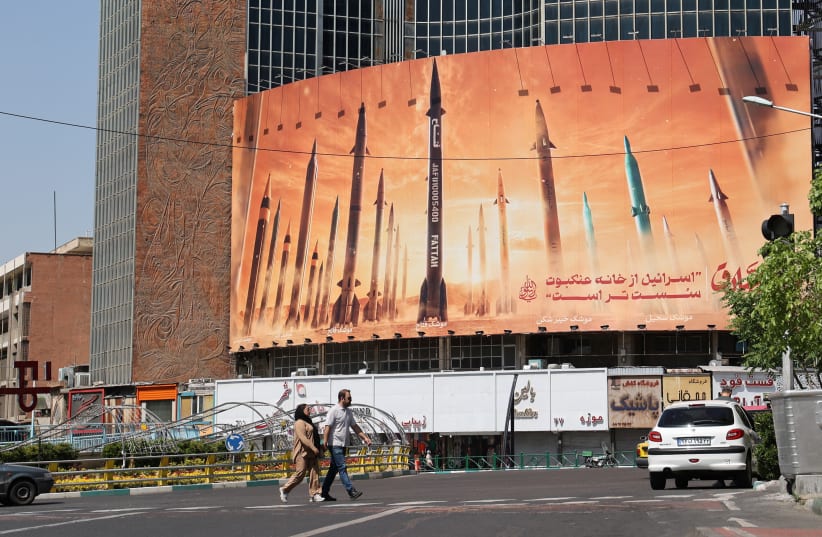ARTICLE AD BOX
An IRGC commander discusses Iran's missile expansion strategy and its implications for Israel.
By SETH J. FRANTZMAN NOVEMBER 9, 2024 18:14 An anti-Israel billboard with a picture of Iranian missiles is seen on a street in Tehran, Iran April 19, 2024.
(photo credit: MAJID ASGARIPOUR/WANA (WEST ASIA NEWS AGENCY) VIA REUTERS)
An anti-Israel billboard with a picture of Iranian missiles is seen on a street in Tehran, Iran April 19, 2024.
(photo credit: MAJID ASGARIPOUR/WANA (WEST ASIA NEWS AGENCY) VIA REUTERS)
The deputy commander of IRGC Aerospace Force has emphasized that Iran “should reach for longer-range weapons,” according to a report at Tasnim News. “With this view, we did not limit the development of missile bases to the geography of the west or south, and we developed these bases to the depth of the country,” Majid Mousavi said.
This is an important comment and illustrates how Iran is focused on its missile strategy. His comments have raised eyebrows in the past, such as in 2020 when he discussed how Iran needed a full range of "medium-range, long-range and short-range” missiles. Iran, at the time, was focused on more precise missiles and longer-range missiles. This has all come into view with recent Iranian missile tests and attacks on Israel.
Mousavi made the comments commemorating the 13th anniversary of the death of the “father of Iran's rocket program, General Hassan Tehrani Moghadam,” Tasnim noted.
“Almost 13 months have passed since the Al-Aqsa storm operation and the brave action of the Palestinian fighters in Gaza, and we are witnessing the limitless crimes of the Zionist regime, which has carried out the killing of people, genocide, and destructive actions that have no limits,” Mousavi said.
He referenced the April attack on Israel and the “implementation of a combined missile and drone operation.” He also discussed the October attack when Iran launched 180 ballistic missiles at Israel. “This operation created a new chapter in terms of changing the balance of the use of weapons from the time of Iran’s origin.”
Iranian missiles and rockets will still be used against Israel
The IRGC commander also spoke about strengthening Iran’s proxies as well as strengthening Iran’s economy and industry to make rockets and missiles. He also discussed the history of the rocket and missile programs.
“During the execution of the Sadiq Promise Operation [the attack on Israel], many people in the western provinces of our country witnessed the rocket rain of the Zionist regime,” he said.
Iranian commanders often speak in parables; for instance, this speech was about commemorating a former Iranian leader in the rocket program, but the point of the speech was to underline how Iranian missiles and rockets will continue to threaten Israel. It’s important to pay attention to these developments and what Iran is hinting at.
Iran is hinting at its continued focus on using ballistic missiles to strike Israel. Iran continues to threaten more attacks. It is also transferring this technology to the Houthis, Hezbollah, and militias in Iraq and Syria. The Houthis recently targeted Israel with a long-range missile. Hezbollah also has been targeting central Israel. This is part of Iran’s vision for using missiles as a strategic game changer to ring Israel with threats.

 2 months ago
208
2 months ago
208








 English (US) ·
English (US) ·